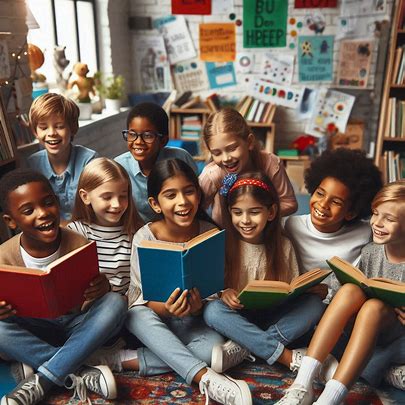Advancing Literacy Through the Science of Reading: How Charitable Initiatives Support Educational Equity
According to the Nation’s Report Card, only 35% of fourth-grade students in the U.S. read at or above a proficient level. This number reveals a literacy crisis affecting millions of children—especially those from underprivileged backgrounds. The way forward is not just reform but transformation. That’s where the Science of Reading comes in, backed by research and ready to be supported by charitable efforts.
More than a teaching method, the Science of Reading is a movement rooted in decades of cognitive science and education research. It helps educators understand how children learn to read and what practices work best. According to The Science of Reading: Transforming Literacy Education, structured and explicit instruction focusing on phonemic awareness, phonics, fluency, vocabulary, and comprehension is key to closing learning gaps. These approaches are especially powerful when combined with the compassion and outreach of charitable initiatives.
Why Literacy Matters for All

Literacy is more than just reading words on a page. It’s the gateway to learning every other subject. It affects a child’s ability to succeed in school, find employment, and engage fully in society. When students fall behind in reading early on, they often struggle for years. Children in low-income communities are at an even greater disadvantage, frequently attending schools with fewer resources and limited access to proven instructional tools.
For these students, intervention is not just helpful—it’s essential. That’s why education-focused charities are stepping up and making a difference. By introducing Science of Reading practices into their programs, they’re not only helping children catch up but giving them the skills to thrive.
The Role of Charity in Spreading Literacy
Several charitable initiatives across the globe are now using Science of Reading principles to improve educational outcomes. Programs like “Ready to Read” offer free monthly books to children from disadvantaged households. The goal is simple: encourage reading from an early age and create a strong literacy foundation.
Worldreader, a nonprofit focused on digital learning, provides children in underserved areas with access to a rich digital library. Their platform includes age-appropriate, high-interest books designed to align with reading development stages. These materials are not just entertaining—they’re carefully selected to build reading fluency and vocabulary.
Another example is the Reverend Bill Crews Foundation in Australia. Their “Everyone Can Read” program has been transforming lives through one-on-one reading support. The program is built around Science of Reading concepts and proves especially helpful for children who have experienced educational trauma or neglect.
How These Initiatives Make a Difference
Charities offer something schools sometimes can’t: personalized attention and long-term mentorship. When students receive consistent support using proven methods, they gain confidence. They begin to see themselves as readers, thinkers, and learners.
These programs also help communities. Parents become more involved, volunteers find purpose, and educators receive the training they need to teach more effectively. It’s a ripple effect that can shift the course of a child’s future—and a whole generation’s potential.
Science and Compassion Can Work Together
Some may view Science of Reading as purely academic, but its heart lies in human connection. When evidence-based instruction meets real-world compassion, incredible things happen. It takes teachers, families, community leaders, and charitable organizations working side by side to ensure every child has the chance to read, learn, and succeed.
Charity is no longer just about giving—it’s about giving wisely. And literacy is one of the smartest gifts of all.
READ ALSO: 6 Inspiring Moments When Free Sports Broadcasts Raised Funds for Education
Conclusion
Addressing the literacy crisis doesn’t require reinventing the wheel. It takes applying what we know works and sharing those tools with those who need them most. The Science of Reading offers the research. Charities provide the reach. Together, they can build a future where every child, regardless of background, has the power to read and the freedom to dream.